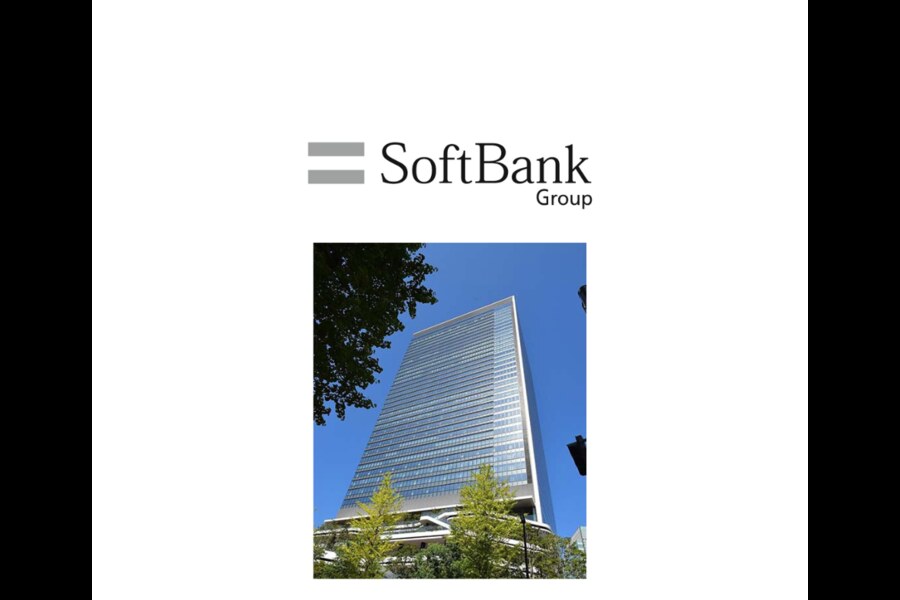SoftBank Group Corp., headquartered in Tokyo, is a global conglomerate with diversified interests spanning telecommunications, technology, and investment management. Under the leadership of founder Masayoshi Son, SoftBank has become a pivotal force in the tech industry, particularly through its Vision Funds, which have invested in numerous startups and established companies worldwide. The company’s investment strategy focuses on sectors such as artificial intelligence (AI), robotics, fintech, and telecommunications. Over the years, SoftBank has been involved in over 100 mergers and acquisitions (M&A) deals, reflecting its aggressive approach to expanding its technological footprint.
Historical M&A Activity
SoftBank’s M&A activities have been instrumental in shaping its portfolio and strategic direction. Below is a chronological list of notable deals up to 2023:
- ARM Holdings (2016) – Acquired for $31.4 billion, marking a significant move into semiconductor technology.
- Fortress Investment Group (2017) – Purchased for $3.3 billion, expanding SoftBank’s investment management capabilities.
- Boston Dynamics (2017) – Acquired from Alphabet Inc. for an undisclosed amount, enhancing SoftBank’s robotics portfolio.
- WeWork (2017–2019) – Invested over $10 billion in total, aiming to revolutionize shared workspaces.
- Sprint Corporation (2013–2018) – SoftBank acquired a majority stake and later facilitated its merger with T-Mobile US in 2020.
- Uber Technologies (2018) – Invested $7.7 billion, becoming one of Uber’s largest shareholders.
- OYO Rooms (2018–2019) – Invested approximately $1.5 billion in the Indian hospitality startup.
- Grab Holdings (2018) – Led a $1.46 billion funding round in the Southeast Asian ride-hailing company.
- DoorDash (2018) – Participated in a $535 million funding round, supporting the food delivery service’s expansion.
- Coupang (2018) – Invested $2 billion in the South Korean e-commerce platform.
- Slack Technologies (2018) – Invested $250 million in the workplace communication platform.
- OneWeb (2019) – Invested $1 billion in the satellite internet company.
- Katerra (2018) – Invested $865 million in the construction technology startup.
- Zume Pizza (2018) – Invested $375 million in the robotic pizza-making company.
- Fair (2018) – Invested $385 million in the car subscription service.
Recent Activities (2024–2025)
In 2024 and 2025, SoftBank continued its aggressive investment strategy, focusing on AI and related technologies:
- Ampere Computing (2025) – Acquired for $6.5 billion, specializing in energy-efficient processors for cloud computing and AI workloads.
- Graphcore (2024) – Acquired the UK-based semiconductor startup, known for its AI processors.
- Wayve (2024) – Led a $1.05 billion Series C funding round in the UK autonomous vehicle startup.
- TravelPerk (2024) – Invested $104 million in the Barcelona-based business travel platform.
- Perplexity AI (2024) – Invested in the AI search startup, valuing it at $3 billion.
- OpenAI Partnership (2025) – Formed a joint venture to develop “Cristal intelligence,” an advanced enterprise AI solution.
Divestiture Activities
SoftBank has also engaged in significant divestitures to streamline its portfolio:
- ARM Holdings IPO (2023) – Raised $4.87 billion at a $54.5 billion valuation, while SoftBank retained a 90.6% stake.
- Fortress Investment Group (2023) – Sold to Mubadala and Fortress’ management, reflecting a shift away from investment management.
- SB Energy India (2021) – Sold to Adani Green Energy for $3.5 billion.
Analysis of Successful and Unsuccessful Deals
Successful Deals:
- ARM Holdings: Despite an initial massive investment, the IPO was highly successful, securing a strong valuation.
- Coupang: The South Korean e-commerce giant saw significant value growth, benefiting SoftBank.
- Uber: Despite initial losses, the investment matured into a valuable asset for SoftBank.
Unsuccessful Deals:
- WeWork: Despite a massive investment exceeding $10 billion, the company struggled with profitability and governance issues.
- Katerra: The construction tech startup collapsed, resulting in losses for SoftBank.
- Zume Pizza: The robotic pizza startup failed to achieve commercial success, resulting in a write-down.
Strategic Decisions and Reasoning
SoftBank’s M&A strategy is driven by a vision of an AI-centric future. By focusing on sectors like AI, robotics, and telecommunications, SoftBank aims to build a synergistic ecosystem. The company’s pivot towards AI and technology, as seen in the Ampere acquisition and OpenAI partnership, reflects this strategy.
Final Thoughts
SoftBank’s aggressive M&A strategy has been a double-edged sword. While it has led to groundbreaking investments in AI and technology, it has also exposed the company to significant risks, particularly in ventures like WeWork and Katerra. The company’s future success will depend on its ability to focus on sustainable, strategically aligned acquisitions, leveraging its expertise in AI and next-gen technology.

